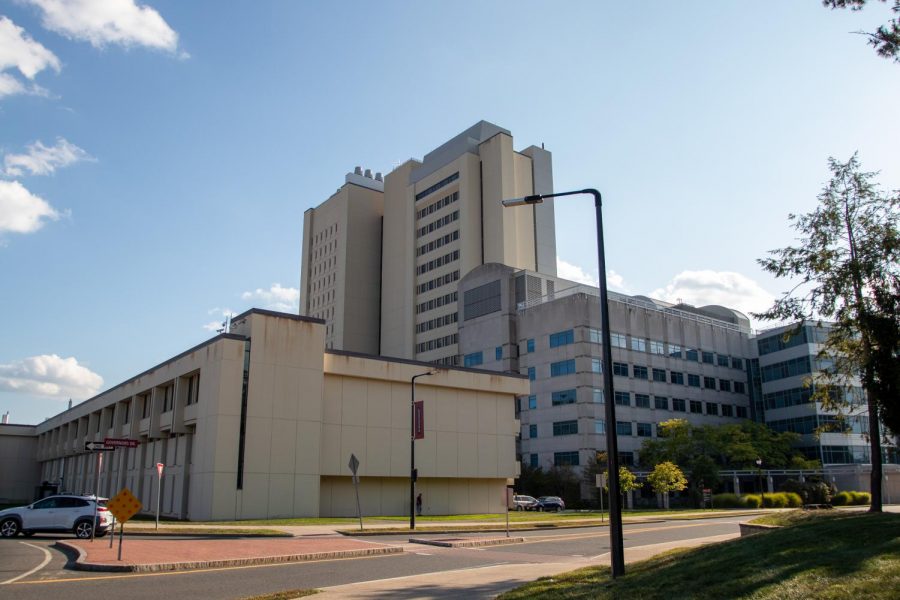Last month, I wrote an article criticizing the University of Massachusetts’ handling of the COVID-19 pandemic. The community’s response was revealing: UMass administrators are breaking their backs trying to make these processes work, and they know it’s not perfect.
It’s no secret that there have been hiccups in COVID-19 related processes. As reported by the Daily Collegian, residents on campus complained of delays in contact tracing, unavailable transportation to quarantine buildings and incorrect or missing quarantine meals. One student commented on the University’s contact tracing program: “UMass’ COVID ‘snitch line’ is wholly ineffective … Especially when a super spreader gathering is occurring, calling the COVID violations tip line usually does absolutely nothing to stop the risky activity.” Many students feel that the University isn’t doing enough to mitigate the spread of the virus.
As much as I’m inclined to feel outraged at the University in solidarity with my peers, my exchanges with the Public Health Promotion Center staff told a different narrative.
It became clear to me that these hiccups are not for lack of effort. In the words of Jeff Hescock, executive director of environmental health and safety and emergency management, “We truly have an amazing team that is working day night [sic] seven days a week … I know everyone has a lot of questions and feedback, but we continue to adapt to support our campus community.” Hescock and Ann Becker share the role of co-directors of the PHPC, working overtime to manage the Mullins testing center, contact tracing, case investigation, quarantine and isolation and vaccinations.
Students cited delays in critical processes as one example of carelessness on the University’s part. While it’s true that time is of the essence when it comes to preventing the spread of the virus, as Hescock described the process, I soon realized carelessness is not to blame. Our contact tracers are human, and they are subject to the passing of time.
The contact tracing team, according to Hescock, is made up of approximately 50 people, each working between 12 and 14 hours every day. “There’s a lot of calls to be made. If I’m doing a case investigation with you, it could take an hour to find out where you were during your infection period. Each one is a complex series of questions. … We always prioritize positive cases, we reach out to those individuals as rapidly as we can. This is days within hours.”
Equipped with plenty of manpower, Hescock shared with me that more staff would not speed up the process. “If we look back a month ago … Having an extra 10 staff members isn’t necessarily gonna make a big difference.” Faced with a high-risk campus last month, the University took swift action by reaching out to state legislators for help in contact tracing.
In response to delayed contact tracing calls during the outbreak last month, “We kind of set our standard at a ridiculous pace,” Hescock shared, which contributes to students complaining of inconsistent or delayed calls. In comparison, Massachusetts’ state-wide contact tracing program can take up to seven days to reach close contacts. “If you got tested at CVS, CVS is going to send your results to the state, the state is then going to send it to your local Board of Health, there can be a … delay in terms of somebody being notified of positive test results. And that doesn’t include the rapidness of turning around the tests.” UMass has the advantage of being a cohesive unit armed with a team of dedicated contact tracers. Because of this, Hescock boasted of a 24-hour turnaround time between a student getting notified of positive test results and receiving a call from a contact tracer to outline next steps.
UMass also outshines its university competitors. As stated by NPR, “Of [American] colleges with in-person classes and more than 5,000 undergraduates, only 25 percent are conducting mass screening or random ‘surveillance’ testing of students. Only 6 percent are routinely testing all of their students.” This puts things into perspective: UMass is part of the mere 6 percent offering routine asymptomatic testing—which extends well beyond the campus’ 5,000 residents — at no cost.
Hescock concluded the interview with a promise to continue looking for new ways to support the campus community: “I wouldn’t be doing my job if we didn’t always take a critical eye of the operations and see if we get feedback [on] how we can improve things, and I think we’ve continued to improve each day.”
While I do believe the University’s decision to bring students back on campus was a poor one, it’s not as simple as throwing all the blame on University administration. Presented with an unfortunate situation, the University staff is working around the clock to support students.
Julia Oktay can be reached at [email protected].
Statistic provided by Jean MacKimmie




















